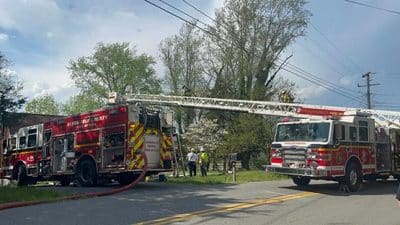VCU survey shows most know little about charter-school concept
Staff Report
News Tips: [email protected]

The Commonwealth Education Poll finds only 8 percent say they have heard or read a lot about them, 27 percent have read or heard some, and the majority of 64 percent have heard or read nothing or not too much about charter schools. When a charter school program is described, a 56 percent majority favors a charter school program, while 26 percent oppose and 18 percent are undecided. Gov.-elect Bob McDonnell made increasing the number of charter schools in Virginia one of his key proposals for education.

“While many state residents don’t know very much about charter schools, when the program is defined, Virginians support them by a 2-to-1 ratio,” said William C. Bosher, Jr., executive director, Commonwealth Educational Policy Institute and distinguished professor of public policy in the Wilder School of Government and Public Affairs. “A plurality of both Democrats and Republicans opposes changing the state constitution to give Virginia’s charter schools more independence,” said Bosher, who is serving as the co-chair of the education transition team for McDonnell with Staunton Republican state lawmaker Chris Saxman.
The Commonwealth Education Poll was conducted by landline and cell telephone from Dec. 1 to Dec. 6, 2009, with a random sample of 1,001 adults in Virginia. The margin of error for the poll is plus or minus 3.9 percentage points.
This is the 10th annual Commonwealth Education Poll, conducted by VCU’s Commonwealth Educational Policy Institute.
Pay-for-performance proposals are also on the docket for the governor-elect’s education agenda. Most Virginians, 52 percent, believe that basing part of a teacher’s salary on student test scores will help the schools retain high-quality teachers. At the same time, a majority, 52 percent, opposes paying teachers whose students perform well on tests more than those whose students perform poorly; 36 percent take the opposite view, saying teachers whose students perform well should be paid more than other teachers.
There are sizeable differences of opinion about test-based pay by family income and gender. School employees and retirees are more likely than other state residents to oppose test-based teacher pay and they are more skeptical that basing part of a teacher’s salary on student test scores will help schools retain high-quality teachers.
Job tenure is a concept unique to the educational sector. When the concept of tenure is explained in a balanced way, the poll finds a plurality of 48 percent opposed to offering tenure to teachers, while 37 percent favor and 16 percent hold no opinion on the tenure issue. While more favorable toward the idea of tenure than other state residents, school employees and retirees show a surprising amount of divide on this issue; a 48 percent plurality of this group favor tenure, 38 percent oppose.
“Even though Virginians oppose both tenure and test-based teacher pay, they believe that using student achievement as part of teacher compensation will help retain the best,” Bosher said.
The entire 75-page report with complete questions and detailed tables of results is available at http://www.cepionline.org.











